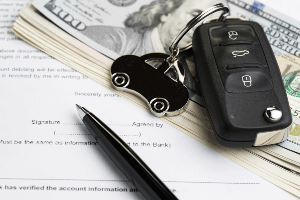 If you were involved in an accident and your vehicle is damaged, but not totaled, it needs to be sent off for repairs. Even after the car has undergone the necessary fixes, its resale value is likely to be less than that of another used vehicle without an accident on its record.
If you were involved in an accident and your vehicle is damaged, but not totaled, it needs to be sent off for repairs. Even after the car has undergone the necessary fixes, its resale value is likely to be less than that of another used vehicle without an accident on its record.
In Indiana, accident victims are allowed to recover compensation for the difference in a damaged vehicle’s resale value. Pursuing compensation for the diminished value of a vehicle may be complex, but our South Bend car crash lawyers are prepared to help you through the legal process. We offer a free consultation to discuss your claim, and there are no fees while we work on your case.
Below, we discuss the types of diminished value claims allowed in Indiana.
What is a Diminished Value Claim?
After a damaged vehicle has been repaired, its resale value usually drops if the damage was due to an accident. The difference in that price is called the diminished value. There are three types of diminished value:
- Immediate – This type of diminished value occurs immediately following the crash before any repairs have been made to the vehicle, and it encompasses the difference in market value before and after an accident caused by a negligent driver.
- Post-Repair Residual Inherent – This refers to the loss of value of a vehicle after it has been involved in an accident but has undergone full repairs and been restored to its pre-accident conditions.
- Repair-related – Any additional loss of value caused by poor repair work on the vehicle.
There are two types of diminished value claims accident victims can make:
- First-party – This claim is made by the vehicle owner or insurance policyholder against his or her own insurance company.
- Third-party – This type of claim is made by the owner of the vehicle against a negligent party’s liability insurance.
Accident victims generally make an inherent diminished value claim against a liable party’s insurance company.
Can I File a Diminished Value Claim?
In Indiana, an accident victim can file a third-party claim for post-repair residual inherent diminished value of his or her vehicle following an accident caused by someone else’s negligence. You may also be able to file a claim with your uninsured motorist property damage coverage for the post-repair residual diminished value of your vehicle.
How Do I Prove the Diminished Value of a Vehicle?
In order to recover compensation for the diminished value of a vehicle, you must prove your vehicle’s fair market value is less only because of the accident.
This is usually done by working with an appraiser who can evaluate your vehicle’s:
- Make
- Model
- Mileage
- Condition prior to crash
- Quality of repairs
The next step is to compare your vehicle to another vehicle with similar qualities but no accident on its record.
Typically, a vehicle loses about 10 percent of its “Blue Book” value after it has been involved in a collision. However, that number may differ depending on the extent of the damage and the quality of the repairs.
If your vehicle is not repaired properly, and you are filing a repair-related diminished value claim, you may need to also prove the substandard quality of the work. Testimony from a car repair professional may be useful to help build a strong case.
Call to Schedule a Free Consultation Today
If the value of your repaired vehicle plummets after a crash caused by someone else’s negligence, you have the right to pursue compensation for the price difference.
Our attorneys are prepared to help you file a claim to pursue compensation for the diminished value of your vehicle as well as for any injuries you suffered in the accident.
The consultation is free, and we do not charge you any upfront fees. There is no risk in calling to discuss your claim.
Call (574) 444-0741 to get started.











